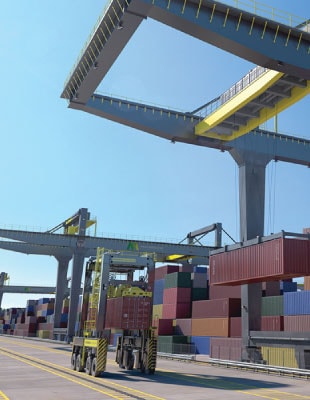In the rapidly evolving landscape of global business, the term "net zero" is no longer just a buzzword; it is a crucial element in having a sustainable operating model and business plan for the future. In Australia, climate reporting for business is likely to come into effect in 2025. This underscores the urgency for businesses to take prompt action to understand organisation emissions and how emissions can impact their bottom line. It's time to shift our perspective – a net zero strategy is not merely a 'nice-to-have' but fundamental to ensuring business continuity in the transition to a low-carbon economy. Redefining net zero as it effects every aspect of a businesses; from operations to markets and supply chains will highlight the urgency of this shift and quantify the benefits of taking action.
Net zero strategy as a painkiller, not a vitamin
Too often net zero strategies are treated as a vitamin, a supplement to enhance overall corporate well-being that brings wider benefits. While true, the reality is businesses are already feeling the squeeze and impacts of transition risks and disruption is occurring in all industries with clean, green competitors. The path to net zero must be regarded as a painkiller for businesses, addressing critical issues such as security and reliability of energy supply, access to compliant and environmentally friendly materials and clean disposal or recycling of products rather than a mere supplement for corporate social responsibility and virtue signalling.
Understanding scopes 1, 2, and 3
To appreciate the significance of net zero, it's essential to grasp the concept of emission scopes. Scope 1 emissions include direct emissions from owned or controlled sources, such as onsite fuel combustion. Scope 2 includes indirect emissions from purchased electricity, heat, or steam. Finally, Scope 3 emissions encompass all other indirect emissions that occur in the value chain, including both upstream and downstream activities such as supplier operations, product use, and end-of-life disposal.

Why net zero matters for business continuity
1. Regulatory Landscape Shifts: Governments worldwide are adopting stringent regulations to combat climate change. Companies failing to align with these regulations risk legal repercussions, market exclusion, and reputational damage.
2. Supply Chain Vulnerabilities: As climate change accelerates, supply chains are increasingly susceptible to disruptions. Extreme weather events, resource scarcity, and shifting consumer preferences can impact suppliers, causing ripple effects throughout the supply chain.
3. Investor and Consumer Demands: Investors and consumers are becoming more conscious of sustainability. Companies that fail to demonstrate a commitment to reducing their carbon footprint may face challenges in attracting investment and retaining customers.
4. Transition Risks: Fossil fuel-dependent industries face transition risks as the global economy shifts towards cleaner energy sources. Adapting to new technologies and practices is essential for long-term survival.
Act now to mitigate future risks
The urgency to act is underscored by the potential disruptions that future environmental changes may bring. By embracing net zero strategies today, businesses can not only mitigate the risks associated with climate change but also position themselves as leaders in a sustainable and resilient future. Comprehensive understanding of your operations coupled with knowledge of risks, opportunities and the levers available to change will help businesses remain resilient and ahead of their competitors as global economies continue to change.
What businesses need to do: A structured approach to sustainability
No matter where you are on your journey - just starting out or industry leading, Arcadis takes a stepwise approach to ensure organisations are having a proportional response to their risk and any actions or recommendations are realistic and achievable for the business to make meaningful improvements. Having the right people involved and a clear understanding of the risks and opportunities will ensure appropriate effort and investment is applied to climate risk. We do this through a structured program focused on assessment, planning, and reporting.
Assessment:
The first critical step is to evaluate your organisation’s climate risk and assess its impact.
- Evaluate climate risk: Prioritise key risks and opportunities and assess the impacts and vulnerability through scenario analysis, with a gradual shift from qualitative to quantitative analysis by 2027.
- Measure impact: Assess baseline GHG emissions, minimally covering scope 1 and scope 2 emissions, though we recommend including scope 3 emissions as well as this is required by year 2 of mandatory reporting.
Planning:
At this point, it is essential to devise a strategy and integrate climate risks and opportunities into corporate governance.
- Embed climate risks and opportunities into corporate governance: Integrate climate risk into the Enterprise Risk Management structure and establish risk management strategies.
- Develop a strategy: Establish GHG reduction targets aligned with climate science and create a plan to achieve these targets. This should also include information about your organisation's long-term resilience and alignment of the business strategy with climate goals.
Reporting:
Once the assessment and planning components are complete, organisations must publicly report across governance, strategy, risk management, and metrics and targets. According to the forthcoming regulations, this reporting must be included in a Sustainability Report as part of an organisation’s Annual Report
- Report internally and externally across governance, strategy, risk management, and metrics and targets in an annual Sustainability Report.
- Continued assessment: Lastly, ongoing measurement of progress is vital for optimisation. Routinely measure progress through annual GHG emissions inventories.
For those needing to ramp up their approach to meet disclosure requirements, we often see the foundations are already there. Providing clear guidance and focus, with a balance of one eye on the near term demands and the other on strengthening long term needs, the feared regulatory barrier can be a welcomed launching pad to business resilience and opportunity.
Helping clients achieve net zero goals with innovative technology
Leveraging cutting-edge digital and AI technology, including Carbon Monitor, Net Zero Catalyst, Enterprise Decision Analytics, and Climate Risk Nexus, Arcadis enable organisations to develop comprehensive net zero roadmaps and robust sustainability metrics. Our advanced tools and expertise empower clients to effectively monitor, report, and optimize their sustainability initiatives, driving meaningful progress toward a more sustainable future. With a focus on innovation and collaboration, Arcadis is committed to providing tailored solutions that help our clients succeed in their sustainability endeavours.
Carbon Monitor is our internal tool to support efficient, consistent, and reliable emissions accounting across our client projects. It includes a comprehensive global emission factors database and is designed with global standard and regulatory alignment, transparent 3rd party verification, and data governance in mind.
Net Zero Catalyst began as a custom energy efficiency model, and has evolved over the past 5 years into our premier decarbonization roadmap tool. It captures corporate goals, existing emissions data, and standardizes the information capture of measures that reduce emissions, streamlining information gathering. Multi-criteria assessment is used to evaluate and prioritise projects beyond carbon and costs. All this occurs within the UI, with built-in workflows and forms that display industry standard reports for net zero strategies.
Enterprise Decision Analytics (EDA) is a powerful decision support platform for asset-intensive organisations. The application allows organisations considers all relevant factors, objectives and constraints to ensure informed business decision-making in areas such as risk management, capital investments, strategy development, and asset investment planning. EDA brings net zero strategies to life by turning initiatives into deliverable investment plans. Compare scenarios and deliver optimal return through optimised, data-driven programs ready for finance and capital works teams.
Climate Risk Nexus is a climate risk and adaptation planning platform that streamlines strategic resilience investments for diverse client portfolios.
Sustainability strategy and achievements at Moorebank Logistics Park
For Moorebank Logistics Park, Arcadis delivered a comprehensive sustainability strategy that encompassed greenhouse gas inventories, climate change risk assessments, and infrastructure sustainability ratings. The strategy identified and implemented various initiatives aimed at reducing energy use and greenhouse gas emissions, resulting in a 79% reduction in emissions and securing $150 million in financing from the Clean Energy Finance Corporation. Additionally, our efforts extended to reducing embodied energy and conducting cost benefit analyses, demonstrating how net zero and sustainability strategies can enhance core business operations and improve business continuity. Sustainability was core to operations and delivered significant benefits to core business here and now, highlighting the criticality of wider sustainability and net zero strategies.
Next steps for your business
Recognising the complexity is crucial, initiating action is imperative, and readiness to adapt is essential. Embracing net zero is no longer optional – it is an imperative for survival and success in the transition to a low-carbon economy. The time to understand and act is now, as businesses that proactively engage in sustainable practices will not only weather future disruptions but thrive in a world that demands environmental responsibility. The challenge for organisations lie in pinpointing priority actions, as they are unique to the company – not one size fits all. Arcadis customizes strategies for clients, emphasizing a tailored approach rather than a universal solution. The new FY25 disclosure requirements may seem overwhelmingly complex – it’s about striking the right balance between sustainability imperatives and financial viability.
To learn more about what steps your organisation can take to bolster your sustainability reports, targets and path to achieve decarbonization, sign up to the Thought Leaders Series webinar: Preparing for Mandatory Sustainability Reporting.












